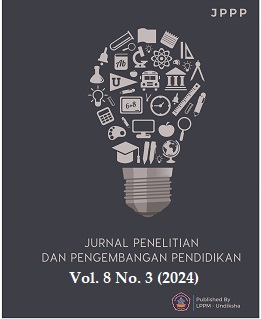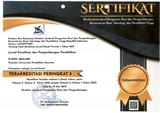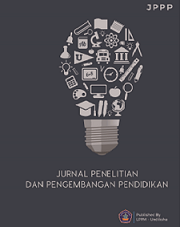Flash Card Media To Improve Learning Outcomes Of Science Material On Cultural Diversity
DOI:
https://doi.org/10.23887/jppp.v8i3.78845Keywords:
Media Development, flash card, Learning OutcomesAbstract
Many students still do not understand science learning due to the use of inappropriate learning models or learning media, which impacts low learning outcomes. This research aims to develop Flash Card Media to Improve Learning Outcomes for Science Material on Cultural Diversity. This type of research is development research or Research and Development (R&D). The model used to develop media is ADDIE. The population in this study was all 20 grade IV elementary school students. The samples taken in this research were all 20 students. The research subjects are learning media experts and learning materials experts. The methods used to collect data are test and non-test methods. The instruments used to collect data were questionnaires and test questions. The techniques used to analyze the data are qualitative and quantitative descriptive analysis and the n-gain test. The research results show a real difference in the average pretest and posttest after implementing Flash Card Media in small-group and large-group trials. The N-gain results show that the increase in pretest to posttest scores is in the medium or high effectiveness criteria. It was concluded that Flash Card Media can improve students' science learning outcomes. Research implications Flash Card media can be used in learning.
Downloads
Published
How to Cite
Issue
Section
License
Copyright (c) 2024 Lutfia Septinur Isnaeni, Fitria Dwi Prasetyaningtyas

This work is licensed under a Creative Commons Attribution-ShareAlike 4.0 International License.
Authors who publish with the Jurnal Penelitian dan Pengembangan Pendidikan agree to the following terms:
- Authors retain copyright and grant the journal the right of first publication with the work simultaneously licensed under a Creative Commons Attribution License (CC BY-SA 4.0) that allows others to share the work with an acknowledgment of the work's authorship and initial publication in this journal.
- Authors are able to enter into separate, additional contractual arrangements for the non-exclusive distribution of the journal's published version of the work (e.g., post it to an institutional repository or publish it in a book), with an acknowledgment of its initial publication in this journal.
- Authors are permitted and encouraged to post their work online (e.g., in institutional repositories or on their website) prior to and during the submission process, as it can lead to productive exchanges, as well as earlier and greater citation of published work. (See The Effect of Open Access)








